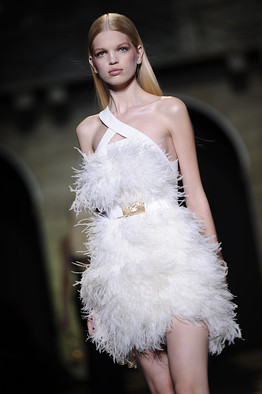Iceland’s fear of Dr. No’s Chinese Communist Domination
Mix in a caldron: lots of fear of Communist domination, one billionaire property developer with a poet’s soul, a dash of James Bond and a soupçon of “yellow peril” — the story of Huang Nubo’s bid for a piece of Iceland shows, above all, widespread unease about China’s rise, analysts say. Speculation erupted this month after Mr. Huang, the founder and chairman of the Beijing Zhongkun Investment Group, announced plans to buy 300 square kilometers, or 116 square miles, of Iceland’s harshly beautiful, remote northeast — 0.3 percent of the country’s land area. Mr. Huang plans to invest $200 million in a luxury 120-room hotel, airport, golf course and horse-riding facilities, the Chinese news media said.
Was Mr. Huang an agent of domination like Dr. No, the half-Chinese, half-German villain of the eponymous 1962 Bond film, the Icelandic political commentator Egill Helgason wrote, ironically, in The Reykjavik Grapevine? LOL
Dr. No Intro
Was this the beginning of the Nordic nation’s very own “Century of Humiliation,” that period from the mid-19th century to the mid-20th when foreigners took over Chinese territory, thrusting it into a state of semicolonialism? Or, perhaps, was it a harbinger of things to come for Europe, as the continent struggles with enormous debt and low economic growth while China zooms ahead, purchasing ports in Greece and the sovereign debt of struggling nations like Portugal, which once rented the Chinese enclave of Macao for 500 taels (about 19 kilograms, or 42 pounds) of silver per year? Was the dark hand of the Chinese Communist Party behind Mr. Huang’s initial bid of 1 billion Icelandic krona, or about $8.6 million, for the snow-swept Grimsstadir a Fjollum farm, with the real goal access to frozen sea passages destined to become economically and strategically important as the globe warms up? “No,” Mr. Huang has said for weeks. “I was moved by that bleak, wild nature,” he told The International Herald Leader, a newspaper affiliated with Xinhua, the state-run news agency. The developer, who has climbed Mount Everest twice and published six volumes of poetry with titles like “Don’t Love Me Any More,” “looks forward to become a wandering poet and lead a wild life,” according to his company’s Web site.
When it comes to China, “people tend to believe everything is connected to the government, and to a certain extent it’s true,” he said, speaking by telephone from Oslo, where he is promoting his book in advance of its publication in the United States in January. Still, while Mr. Chan emphasized that he did not know enough about Mr. Huang’s offer to be sure, he thought it unlikely that the property developer-cum-poet was part of a government plot. “Not everything’s that well planned,” said Mr. Chan. “It may sound like a big conspiracy but probably it’s not.” Chinese overseas projects are “mostly about economic interests,” he said.

